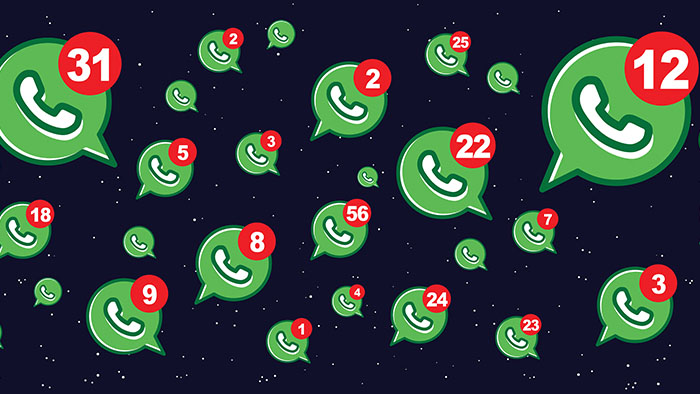
As I woke up after a short overnight catnap, I picked up my phone —as is my habit.
And instead of being greeted by news updates, I was welcomed to a WhatsApp rabbit hole, courtesy of the family WhatsApp group I had just been added to. In over 1000+ messages on the family message board, my extended family had been debating over ‘cat videos’, ‘blood donation’, a ‘disease scare’, ‘festival celebrations’, and ‘birthday greetings for a distant cousin’.
As I shut down my phone by just giving those messages a cursory glance, I stumbled to the bathroom to start my morning routine. It was in the middle of my brushing routine that I stopped all of a sudden, and rushed to pick up my phone again.
As I scrolled through my family’s messages, I stopped and stared at the supposed ‘disease scare’ messages. And I became worried.
A retired teacher Aunt of mine, who travels often and loves calling me up every 15 days to check up on me, had ‘forwarded’ a text message she had received regarding a ‘viral’ disease that was spreading and mutating across the country.
And my first thought after reading it was: “Wow! I need to tell the folks in my newsroom about this. This is huge news!”
And then my excitement immediately dampened. I remembered the first question my boss would ask: “What is the source of the news?”
I am pretty sure saying ‘my Aunt told it to me on WhatsApp’ would not be enough to save my job.
So I did the next best thing. I Googled it.
And the first search result reminded me why in a world of WhatsApp forwards, double confirmation and confirmation from an official source is important.
‘Fake News - Hoax about disease scare being spread over WhatsApp’ was the headline I was met with.
In the same breath I thanked my stars for Google and uttered some not-so-nice words about WhatsApp forwards.
More than rumours and gossip, the one thing that has hurt the media industry the most in recent years is - ‘WhatsApp’ forwards.
We love WhatsApp, don’t we? It’s cheap, easy-to-use and fast. Not to mention we get to connect to people who we may not always be comfortable calling. And it is much better than having a conference call.
But the dark side of this texting application is that we cannot always adjudge the authenticity of the information that is being shared with us.
Sure, we can say that the person who is sending us the message has no reason to lie or has never been wrong about stuff before.
But all it takes is one mistake, one misspelling, one ill-intentioned message or one doctored image.
In this new, digital-first world, the access to technology people of all age-groups have is unprecedented. And we have become more accustomed to receiving the ‘facts we believe’ than the truth.
So it is very easy for a person with malice in their heart stir up trouble or cause chaos by sending one altered WhatsApp forward. If it accompanied by a doctored image or video, we believe their intent.
And this hurts us the most. Especially the media industry. Because it is easy for people to stand up and say that either we are late with the news or we have our facts wrong.
And more often than not, people applaud others who say this.
But here is the thing about the news. We have to authenticate information we need and then re-confirm it with another source. Only then can we give the public that information. Or wait for the authorities to confirm or deny the news. And that takes times. We wish it was as simple as trusting a WhatsApp forward.
Think of it this way: Imagine we (news folks) send out information that we heard that someone famous is dead. And then sometime later, after panic has set in, we report again that we got it wrong and the person is alive and well. How would you feel?
Because the truth is that a doctor pronounces a person dead. Not the news.
So, rather than giving into believing a WhatsApp forward that you feel may be dicey, how about going one step further and Googling it?
The good thing about the internet today is that it does not cost a lot to browse it. It usually comes bundled with the same internet pack that allows us to access WhatsApp.
And we can often help people the way I helped my Aunt and my family on that WhatsApp group — by telling them that there is no need to panic as the ‘so called’ news is not authentic.